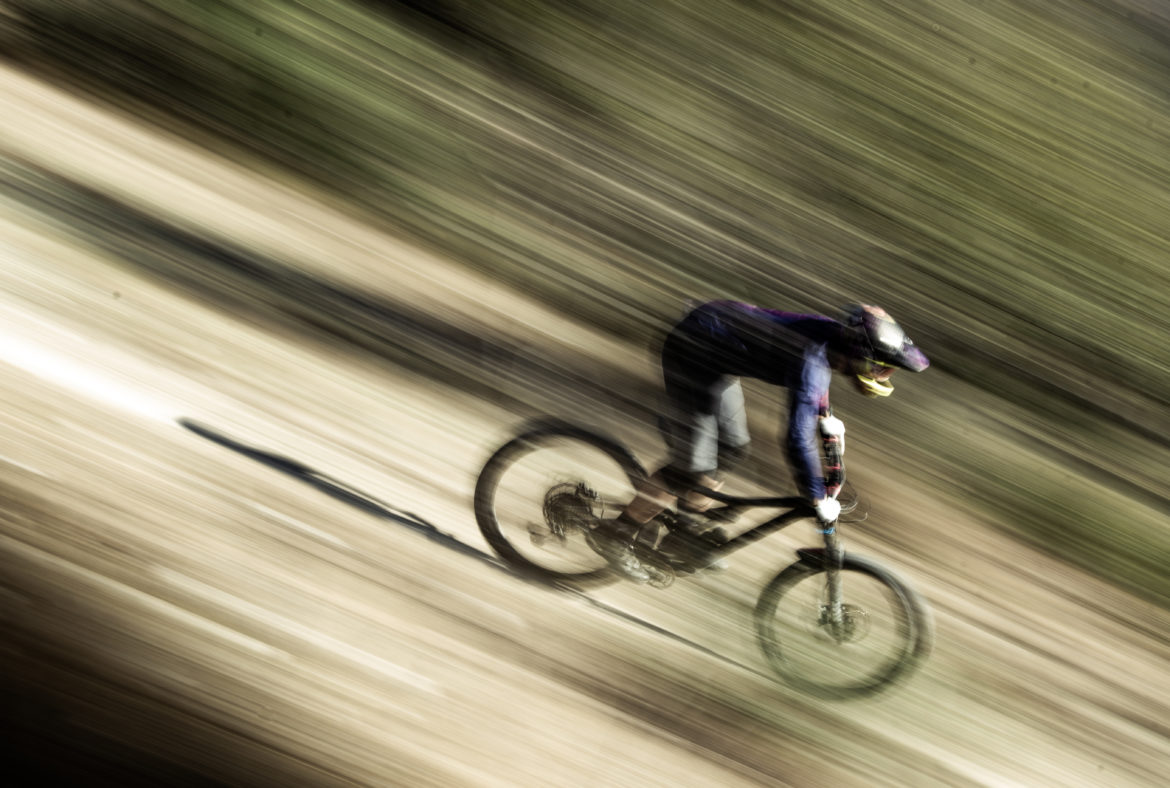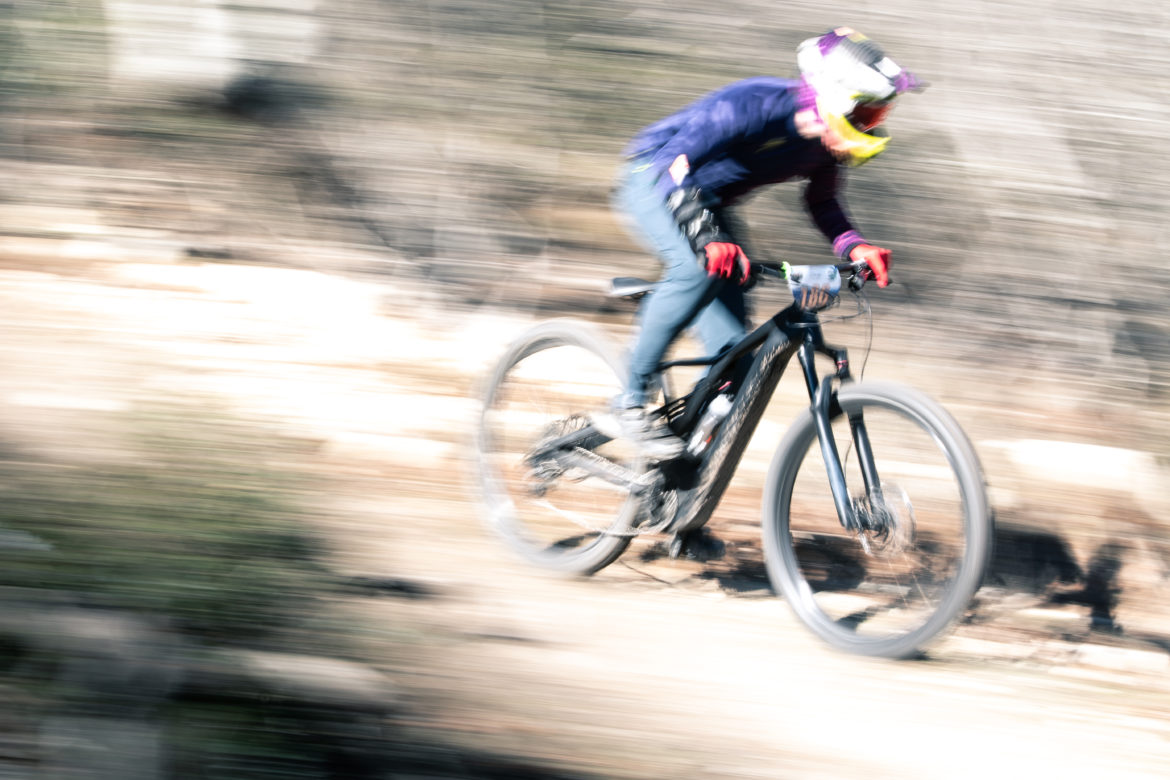
Up until now, we’ve heard a lot of talk about e-bikes amongst friends and in the industry, and both marketing and sales appear to be on the rise.
Here in the USA, a regional enduro series in the south began featuring an e-MTB class in 2020. Though the initial amount of entries were minimal, the amount of buzz and chatter around the subject have been monumental. This new discipline may have a significant impact on the future of racing.
Now in its sixth year, the Southern Enduro Tour takes place across three states in the first four months of the year. With a total of six stops in Texas, Arkansas and Oklahoma, there are plenty of opportunities to hit some very diverse trails with friends.

After the 2020 season opener, I had the opportunity to reach out to some of the riders (e-MTB and non-electric) as well as the race organizer for some insight and to explore where the future of electric mountain bikes in racing may lie.
There wasn’t a better place to begin than with the mustache himself, Dustin Slaughter of Slaughter Trail Guides, race organizer for the Southern Enduro Tour. I pitched the question of how it all went down. In other words, what had inspired him to offer the opportunity for those with electric mountain bikes to compete on the same trails as those without batteries? Dustin had the following to say:
“The main reason I was influenced to add it was because I had several folks ask me about doing it.”

Once the idea was suggested, Dustin passed on the question to the public in a pre-season survey to help gauge his audience and improve the series. With over 300 survey responses, Dustin saw it as “a valuable insight and very relatable” to receive so much input from the riders themselves. Most of the responses supported the idea of bringing an eMTB class to the series. As a result, every event in the series now has an eMTB class available with every venue accommodating e-bikes with welcome arms.
“If it helps them participate and have fun with us, then I’m in support to help develop the sport in that direction. The numbers haven’t been huge in the class, but riders are showing up and I bet it will grow!” says Slaughter, patiently encouraging the growth of this new discipline.
Another individual who has his feet dipped well into the industry and regularly races enduros on his motorless bike is Matt Ricks. Ricks is actually a market developer for Specialized Bicycle Components, specifically the South Texas region.
I’ve unknowingly photographed Ricks since 2019, but this year something caught my eye. He, too, was on an e-bike.
At the time of reaching out to him about his perspective on this topic, I had no idea he worked for a large bike brand. To me, he was simply a rider who spent time on both sides of the fence, on both saddles, you could say. Knowing he had spent a fair amount of time racing on both bikes, I was keen on getting his input.
After riding e-bikes for two years, Ricks has appreciated the amazing “growth and excitement that comes from that category.” Sitting within the industry, he’s constantly reminded of real-life scenarios where e-bikes are offering a new lifestyle for those unable to ride as fast as their friends/family or even ride at all.
“The electric bicycle unlocks a new style of riding. I can ride longer, faster, and places that I can’t ride on an analog bike.”

This is a great argument for e-bikes in general, but how is it racing one in a world that can sometimes be closed-minded?
While most are supportive and want to try it out themselves, some competitors do say racing e-bikes is for “cheaters and wimps.” To which Ricks shrugs it off.
“I’m having too much fun to be worried about what others think. The fact of the matter is that anyone can ride an electric bike and have just as much fun or more fun than the guy on the analog bike.”
While Ricks personally respects both viewpoints on e-bikes, he does see the excitement building exponentially in favor of electric mountain bikes lately. Speaking from a marketing point of view, “We’ve seen a roughly 200% growth in the electric bike category in Texas every year for the last three years. The trend isn’t going to slow down and I can’t wait to have more people to ride and race with in the future.”
Ricks says, “It’s just a matter of time before more electric bikes come into the racing scene and start to change how people view the sport.”

I also got the chance to chat with Cody Haverfield, another participant in the eMTB class at Round 1 of the Southern Enduro Tour in 2020.
Masking it well on the bike, Haverfield was actually recovering from a horrific knee injury during this particular race. “I saw it as an opportunity to race with my buddies and not completely blow my body up after little to no training prior to the race.”
Those of you who have ever owned an e-bike can likely attest to Haverfield’s experience at this race. Not only was the racing fun, but he also “received lots of questions, test rides and of course interacted with the occasional heckler or nay-sayer.” Most of which have never ridden an e-bike before, he later discovered.
He also provided some insight as to why he enjoys racing e-bikes in addition to some interesting findings he observed.
Relatively speaking, Haverfield noted that though the effort was similar to that of a normal, non-motorized race, he still achieved a higher average speed yet recorded a similar heart rate in both races. He did, however, experience a surprise during his first e-MTB race. “One thing I overlooked was the 20mph cut-off…much of the course I was riding a 51lb bike with no help!”

Lastly, I spoke with one of the friendliest (one of many) women in the field, Angie Koppa. She’s a cycling addict and frequent enduro racer out of Kansas City that will always give you time of day, but you know she won’t BS you either. This is exactly why I reached out about her view on e-bikes racing enduro, as someone who races regular bikes.
“I really don’t have anything against e-bikes in enduros. I am sure it’s fun, but it isn’t for me,” Koppa says, reinforcing her enjoyment of long, sufferable rides.
Separated by class, but not separated on the trails, she recalls numerous times being passed on transitions to stages by riders on e-bikes. “I can’t help but feel they’re missing out in some way, but how would I know, I’ve never raced on one.”
“I love the idea of getting more people on bikes, but I can’t help but wonder why anyone able-bodied and young is enticed. But I’m always willing to understand!”
If there’s one common theme among cyclists in general, it is that we all wish to see more people on bikes. Setting aside the classic arguments for and against e-bikes for a moment, racing e-bikes allows individuals to ride their preferred bike and gives them the opportunity to be competitive with themselves and others. Riding and racing against friends new and old is really what competition is all about and perhaps something that should be encouraged.























1 Comments
Apr 14, 2020